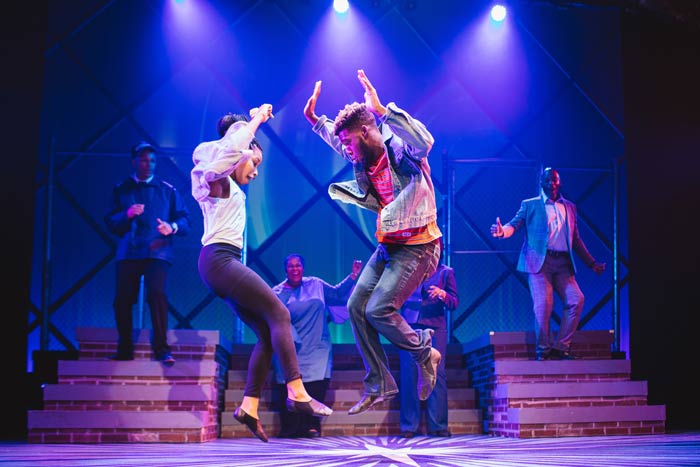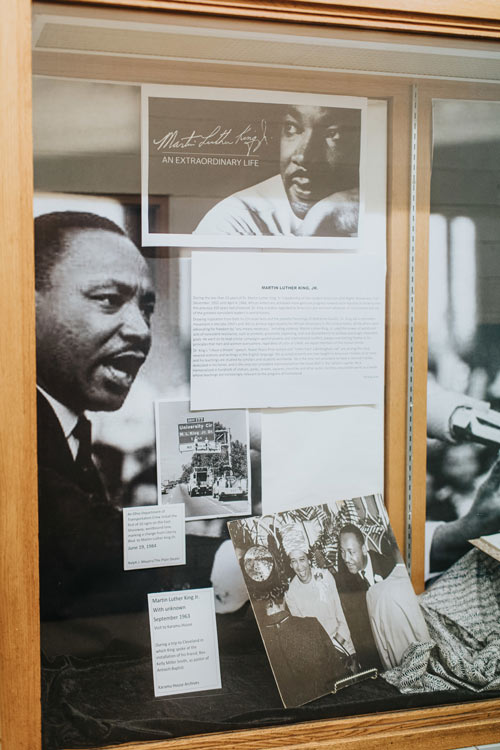
One hundred five years ago in Cleveland, Ohio, Karamu House began as the Playhouse Settlement — a safe place that provided community resources, connected and empowered families, and allowed people to reach their highest potential through the vehicle of arts experiences. Today, Karamu stands strong as a convening place for all people and a voice that continues to amplify, celebrate, and honor the African American experience. The recent murders of Black, American citizens at the hands of law enforcement, sworn to protect and serve, reflects a new low in the calamitous state of the Black experience in America.

We should all be outraged.
America, the beneficiary of hundreds of years of stolen Black labor, from the plantation cotton fields to the prison industrial complex, has failed its Black citizens. America increasingly demonstrates its devaluation of black and brown bodies and illuminates the fact that we aren’t safe in the streets, in our cars, or even at home in our own beds.
This is not okay. We are not okay.
Karamu House acknowledges that the fight to end racism continues. The fight to dismantle the institution of white supremacy continues. We stand strong as a cultural arts institution ready to call out apathy, ready to call out trite demonstrations disguised as all-ism, ready to affect real change and empower the people to take the same just stand.
On Juneteenth, Friday, June 19, 2020, the commemoration of the ending of slavery in the U.S., Karamu House will debut “Freedom on Juneteenth,” a program to feature musicians and vocalists, spoken word artists, and dancers, as they too, respond to the recent murders of Black Americans through their respective art forms. The program, to air at 7PM EST/4 PM PST on local television stations, various streaming platforms, and social media, will also include live dialogue and conversation, with accessible resources in order to create change within our communities.
The “Freedom on Juneteenth” program is designed to celebrate, educate, heal and activate our communities. Audiences will be invited and encouraged to utilize the shared resources and to transform anger, disgust and frustration into decisive ballot responses in November, especially within local elections. Karamu House seeks to help educate all people on the political process and remind America that lawmakers serve at the pleasure of the people. As Tony F. Sias, President & CEO, says, “We will no longer be pacified by well-wishes and hopes for justice. We are the change we have been waiting on. The question is: what will we do differently this time, and how will you activate your power?”
Additional details about Karamu House’s all-access, virtual Juneteenth event will be available on its website and social media platforms.
About Karamu House
Recognized as the oldest African American performing arts institute in the nation, Karamu House is listed on the U.S. National Register of Historic Places and featured in the Smithsonian’s African-American Museum. Legendary artists including Langston Hughes, Ruby Dee, Robert Guillaume, Ron O’Neal, Bill Cobbs, James Pickens, Jr., Vanessa Bell Calloway and Imani Hakim have been associated with the 104-year old “place of joyful gathering” (the meaning of “Karamu” in Swahili.)
In 1915, Oberlin College graduates Russell and Rowena Jelliffe opened the Playhouse Settlement in an area called Cleveland’s “Roaring Third.” The Jelliffes wanted to build an environment where people of different races, religions, and socio-economic backgrounds could come together to share common ventures through the arts. Karamu was established as a gathering place for racially diverse members of the surrounding community at that time. Today, Karamu is a beating heart for the entire community, regardless of race, ethnicity, sexual orientation, gender identification, or age. Core programs include socially relevant and professional quality theatre; arts education programming for all ages; and community programming, such as comedy, live jazz, and spoken word performances, that invites participation and engagement, reflection, and a re-commitment to cultural values.
For more information, visit www.karamuhouse.org.
Source: Karamu House, June 05, 2020
